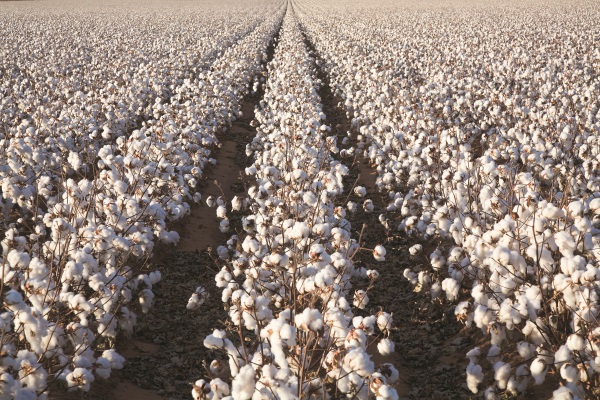Wrangler Report Touts Value of Soil Conservation Practices
In the spirit of Earth Day, Wrangler jeans has published a report highlighting significant economic and environmental benefits of certain cotton farming techniques.
The report, “Seeding Soil’s Potential,” synthesizes the findings of more than 45 scientific papers and reviews produced by academic, government and industry researchers, leading Wrangler to definitively conclude that conservation tillage, cover crops and crop rotation result in greater crop resiliency and productivity, among a host of other benefits to the grower and the land.
Wrangler’s soil health advisors that reviewed and validated the findings include USDA’s Natural Resources Conservation Service (NRCS), The Nature Conservancy, and the Soil Health Institute.
“Wrangler believes that our supply chain does not begin with fabric or cotton. It begins with soil and the land itself,” said Roian Atwood, director of sustainability for Wrangler. “Preserving and enhancing the health of soil is critical and necessary to the preservation of America’s denim heritage and future generations of people who work the land. That’s why we’re committed to doubling our use of sustainably-farmed cotton over the next year.”
“I’m grateful Wrangler has taken up this cause, because the potential to transform agricultural lands with soil health practices is tremendous,“ said Wayne Honeycutt, president and CEO of the Soil Health Institute. “If farmers adopt these practices globally, we’ll have much greater resiliency in our food and fiber production. We’ll also have cleaner water and air, and we can draw carbon out of the air to regenerate our soils for current and future generations.”
In the U.S., cotton is grown on approximately 12.5 million acres stretching from the Southeast to the Southwest. U.S. growers rank among the most efficient and responsible in the world, but they face challenges from intensifying periods of drought, flooding and market uncertainty. The emerging soil-health practices outlined in this report can help buffer growers from these risks by lowering their costs and improving the resiliency of crops.
In addition to this report, Wrangler also is contributing to the creation of soil health measurement and tracking tools that will allow growers to anonymously compare their practices and productivity to regional peers, while also receiving detailed information for decision-making.
Last year, Wrangler introduced its soil health pilot program to bolster the supply of sustainable cotton, while championing growers who are leading the way and encouraging wider adoption of soil-health practices. Today, the program includes five cotton producers representing farms in Halls, TN; Athens, AL; Albany, GA; Conway, NC; and Big Spring, TX.
“We’ve experienced the benefits of combining these three practices,” said Eugene Pugh, program partner and cotton farmer in Tennessee. “It’s allowing us to decrease our inputs while maintaining, and even improving, yield. And at the same time, our soil is improving with each passing season. That feels really good.”
To help tell the story, Wrangler – a leading manufacturer of the world’s denim – produced a short video about soil health practices in cotton farming.
Source – Wrangler









